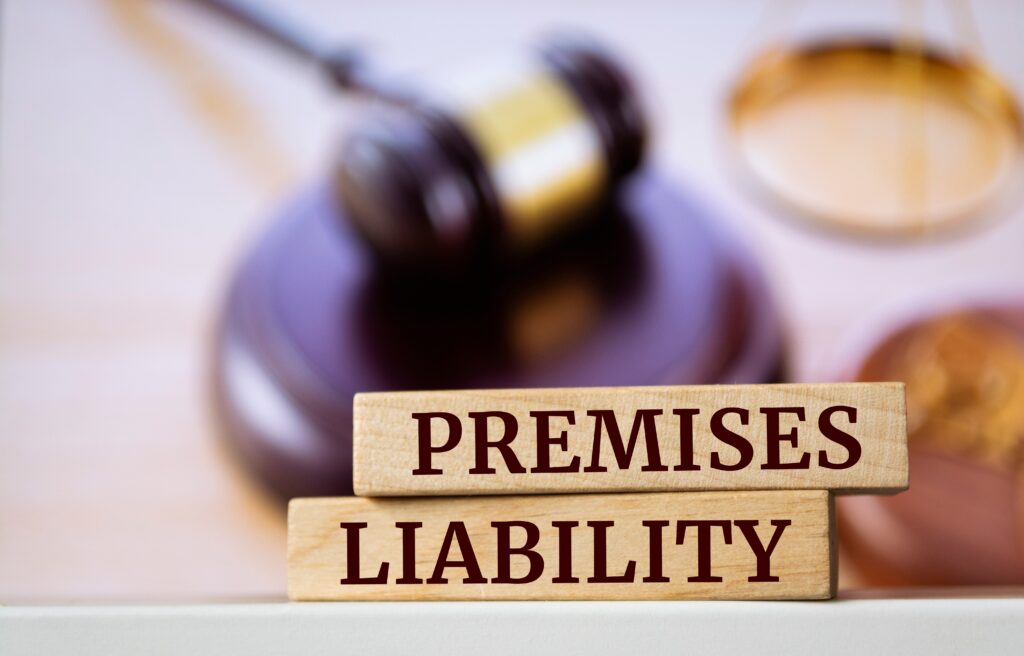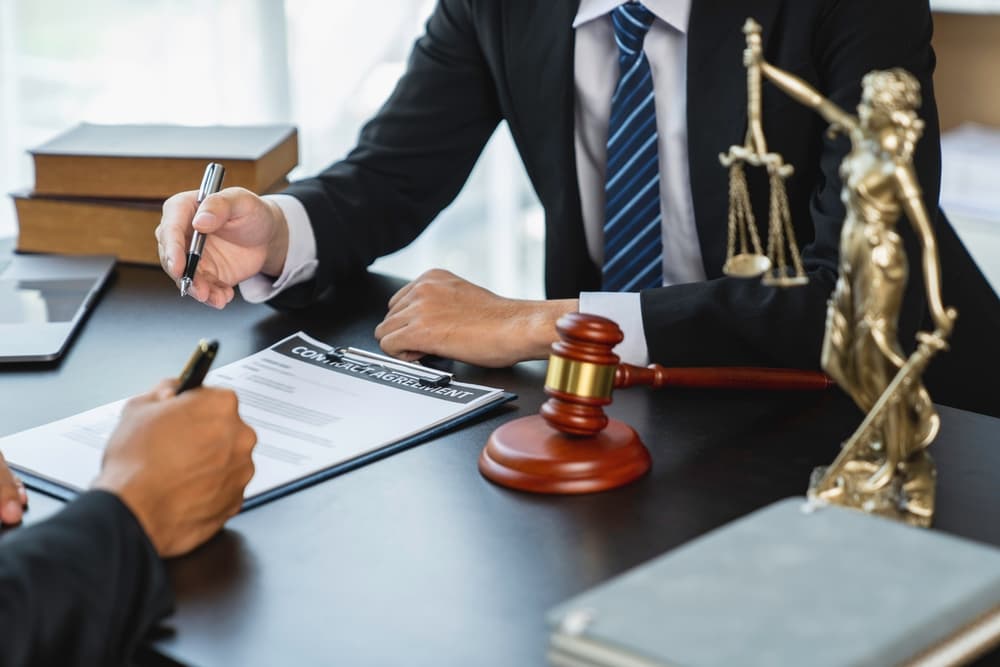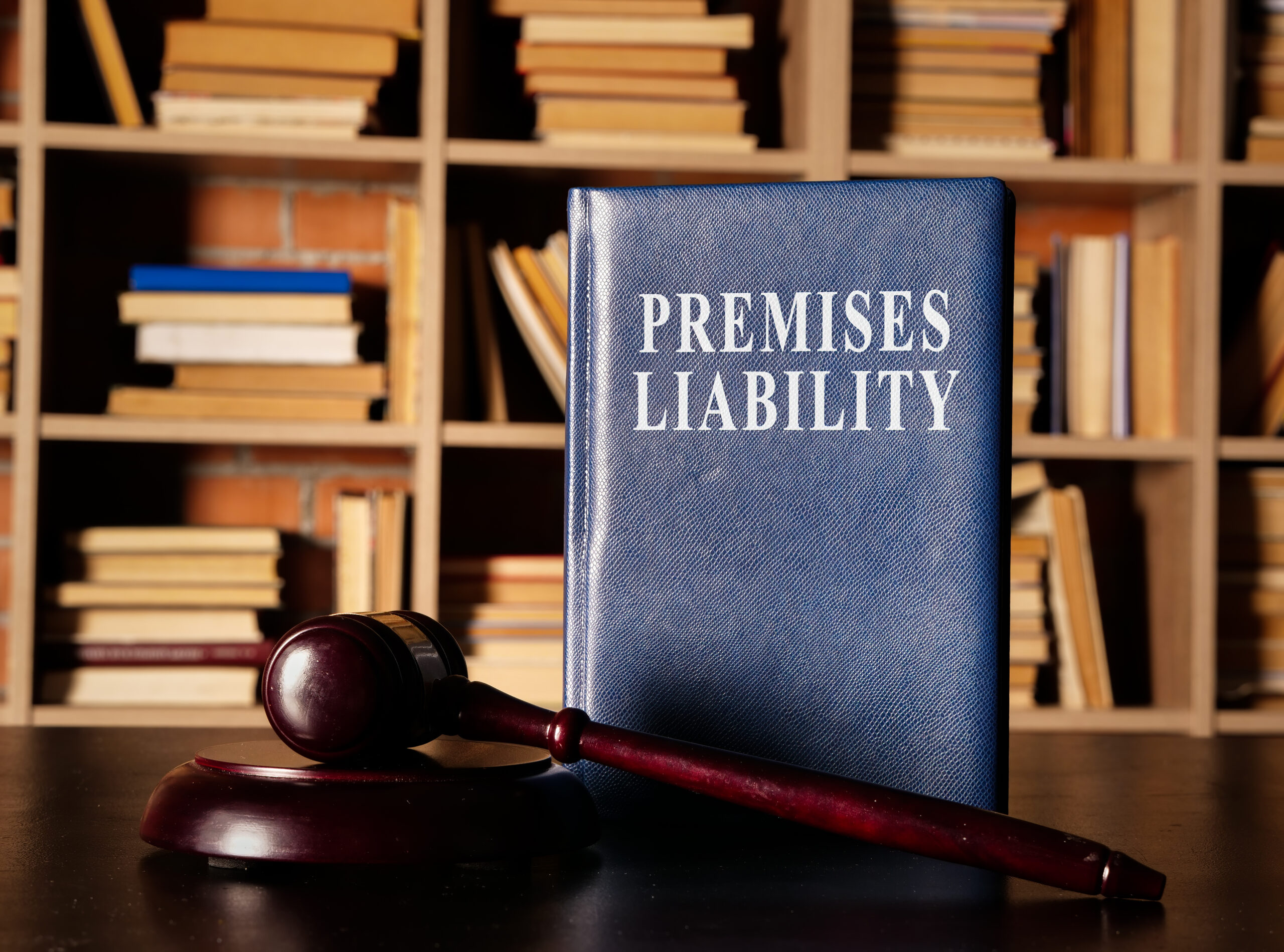If you’ve been injured on someone else’s property, you might wonder, “What can I do about this?” More importantly, you might ask yourself if there’s even anything you should do. Whether it was a slip on a wet floor, an injury in a poorly lit parking lot, or a preventable accident at a business, the law surrounding premises liability may provide you with a path to compensation.
Premises liability is an area of personal injury law that holds property owners responsible for maintaining safe conditions on their property. It’s an important concept because it ensures accountability and keeps our community spaces safer for everyone. Still, proving a premises liability claim is no simple task, and the process can feel overwhelming. With this blog, we’ll guide you through what’s involved and help you better understand your rights.
What Is Premises Liability?

Premises liability, at its core, revolves around one idea—that property owners or occupiers have a legal duty to ensure their spaces are reasonably safe for visitors. If a property owner fails to meet this duty and you’re injured as a result, you may be entitled to compensation for your medical bills, lost wages, and other damages.
While this sounds straightforward, these cases can become complicated because proving liability requires evidence and attention to many details. This is where understanding the fundamental elements of a premises liability case can help.
What Must Be Proven in a Premises Liability Case?
Four key elements must be demonstrated to successfully pursue a premises liability claim. Each element builds on the next to prove that a property owner was at fault for the harm you suffered.
1. Duty of Care
The first question in any premises liability case is whether the property owner owed you a duty of care. A “duty of care” means the owner had an obligation to maintain a safe environment or, at the very least, warn you about potential hazards.
The duty owed to you often depends on the reason you were on the property. Common visitor categories include:
- Invitees: These are people who enter a property for a business purpose, like customers at a store. Property owners owe invitees the highest duty of care and must actively inspect and fix hazards on the property.
- Licensees: These are social guests who have permission to be on the property. For licensees, property owners must address any dangers they’re aware of and warn guests about them.
- Trespassers: Generally, property owners owe no duty of care to trespassers. However, there are exceptions, particularly if children are involved.
Your status matters, but remember, your safety should never have been taken lightly.
2. Breach of Duty
Once a duty of care is established, you must show that the property owner breached this duty through negligence. Negligence occurs when the property owner knew or should have known about a hazardous condition yet failed to address it.
For instance:
- A restaurant that ignores a leaking pipe for weeks might be considered negligent if someone slips on the wet floor.
- A poorly trained building manager who skips routine inspections may also be breaching their legal duties.
It’s not enough for a property to be unsafe; you must prove the owner failed to take reasonable steps to prevent injuries.
3. Causation
Causation means connecting the dots between the property owner’s negligence and your injury. Just because there’s a hazard on the property doesn’t automatically make the owner responsible for every accident. You’ll need to clearly show that your injury was a direct result of the property owner’s failure to act responsibly.
For example, if you slipped on a wet grocery store floor but the store had cones and signs warning you about the hazard, it might not meet the threshold to prove negligence. However, if no warnings were in place despite the floor being wet for hours, you may have a strong case.
4. Damages
Finally, you’ll need to demonstrate the losses you suffered because of the incident. These losses, or damages, can include:
- Medical bills for treatments, therapies, and medications
- Lost income if you missed work
- Pain and emotional suffering caused by the injury
- Future expenses, like long-term care or reduced earning potential
Every accident comes with its own set of damages, and illustrating the impact the injury has had on your life is crucial in building your claim.
Evidence You Need to Prove Premises Liability
Building a solid premises liability case relies heavily on evidence. The stronger your evidence, the better your chances of achieving a favorable outcome. It’s important to begin collecting proof immediately following the incident while the details are fresh and the scene is untouched.
Some key forms of evidence include:
Witness Testimony
Eyewitness accounts can paint a clear picture of what occurred. Whether it’s a shopper who saw you fall or an employee who can confirm the hazard existed for hours, witness statements can strengthen your case immeasurably.
Photographs or Video Footage
Images of the scene, including the hazardous condition that caused your injury, serve as powerful evidence. For example, photos of a broken railing or uneven sidewalk can clearly demonstrate negligence. Security camera footage can also show the exact moment of an accident, leaving little room for disputes.
Incident Reports
If you reported your injury to the property owner or filed a police report, these records can become a crucial part of your case. Always notify someone in charge immediately after an incident to ensure it’s documented.
Expert Witness Opinions
Sometimes, an expert may be called on to explain how the property owner failed to meet safety standards. For example, building safety inspectors or medical professionals can provide valuable insights to support your claim.
Medical Records
Your medical records help link your injuries directly to the accident. They outline the extent of your injuries, the treatments required, and the potential long-term effects.
Gathering and preserving this evidence is vital, but it’s not something you need to manage on your own. Attorneys often step in to handle the investigative legwork, ensuring no piece of evidence is overlooked.
Common Types of Premises Liability Cases

Premises liability encompasses a wide range of accidents. Every case is unique, but some of the most common examples include:
- Slip and Fall Accidents: Wet floors, icy sidewalks, or uneven surfaces can cause serious injuries.
- Negligent Security: Insufficient lighting, broken locks, or a lack of security guards can lead to dangerous situations, particularly in parking lots or apartment complexes.
- Unsafe Conditions: Examples include falling merchandise in stores, exposed wiring, or broken staircases.
- Swimming Pool Accidents: Drowning or injury risks can be amplified without proper fencing, signage, or supervision.
Each type of case presents unique challenges but revolves around the same idea—that the property owner failed to take reasonable steps to ensure safety.
The Importance of Acting Quickly
If you’ve been injured, waiting too long to act can harm your chances of receiving compensation. Several factors make swift action essential:
- Preservation of Evidence: Hazards like spills, icy sidewalks, and broken fixtures are often cleaned up or repaired quickly. Without photos or documentation, you risk losing critical proof.
- Witnesses Might Forget Details: Over time, memories fade, and witnesses may not recall the specifics of what they saw. Collect their statements or contact information as soon as possible.
- Meeting Legal Deadlines: Personal injury cases are subject to statutes of limitations, meaning you only have a short time to file your claim. Missing this deadline could bar you from recovering any compensation.
The longer you wait, the harder it becomes to build a strong case. Taking these first steps immediately after your injury ensures you’re set up for success in the months ahead.
How a Lawyer Can Help You Prove Your Case

You shouldn’t have to face the physical, emotional, and financial toll of an injury on your own. A skilled personal injury lawyer can step in to take over the most challenging aspects of the claims process, allowing you to focus on healing. From gathering evidence and negotiating with insurers to building a compelling case in court, your attorney’s primary goal is to fight on your behalf.
At Abels & Annes, P.C., we believe that no one should have to suffer due to someone else’s negligence. When you hire us, you’re hiring compassionate advocates who will fight to hold property owners accountable for their actions.
Contact us today and take the first step toward justice and the recovery you deserve.
FAQs About Proving Premises Liability
When dealing with an injury caused by unsafe conditions on someone else’s property, it’s natural to have a lot of questions. Below, we’ve answered some of the most common concerns people have about premises liability cases. Remember, every case is unique, and speaking directly with an attorney can provide you with answers tailored to your situation.
1. How long does a premises liability case take?
The length of a premises liability case depends on several factors, including the complexity of your claim, the severity of your injuries, and whether the property owner or their insurance company disputes liability.
Some cases resolve within months through settlement negotiations, while others, especially those requiring litigation, can take a year or more to conclude. Your attorney will work to move things along as smoothly and efficiently as possible, but it’s important to prioritize building a strong case over rushing to a resolution.
2. What if the property owner denies responsibility?
It’s not uncommon for property owners to deny fault, often claiming they were unaware of the hazardous condition or that you caused the accident through your actions. However, their denial is not the end of your case.
Your attorney can collect evidence, such as witness statements, photos, maintenance records, or security footage, to prove the property owner's negligence. An experienced lawyer knows how to counter these defenses and build a compelling argument in your favor.
3. Can I still file a claim if I didn’t report the accident immediately?
Ideally, all accidents should be reported to the property owner or manager right away, as this creates an official record of the incident. However, failing to report the accident immediately does not necessarily prevent you from filing a claim. You can still provide other forms of evidence, such as medical records, photographs, or witness testimony, to establish the details of what happened. If you didn’t report the accident right away, it’s even more critical to consult a lawyer who can help you gather the necessary proof.
4. What if I was partially at fault for the accident?
Being partially at fault does not automatically prevent you from recovering compensation. Illinois follows a system called comparative negligence. This means you can still receive compensation as long as you were less than 50% at fault for the incident. However, your recovery amount will be reduced by your percentage of fault. For example, if you were found 20% responsible, your compensation would be reduced by 20%. A knowledgeable attorney can help minimize any claims of fault made against you.
5. How much compensation can I expect to receive?
The amount of compensation you may receive depends on the unique circumstances of your case, including the severity of your injuries, the impact on your daily life, and the financial losses you’ve incurred. Compensation typically covers:
- Medical bills (past and future)
- Lost income from missed work
- Pain and suffering
- Emotional distress
- Long-term needs, such as therapy or reduced earning capacity
There’s no universal answer to this question, but an attorney can evaluate the details of your case, review your damages, and provide an estimate of what you may be entitled to pursue. Importantly, they will fight to secure the maximum compensation possible.
If you have more concerns or need help understanding your rights, reaching out to a knowledgeable premises liability lawyer can provide you with the clarity and support you need during this challenging time.



